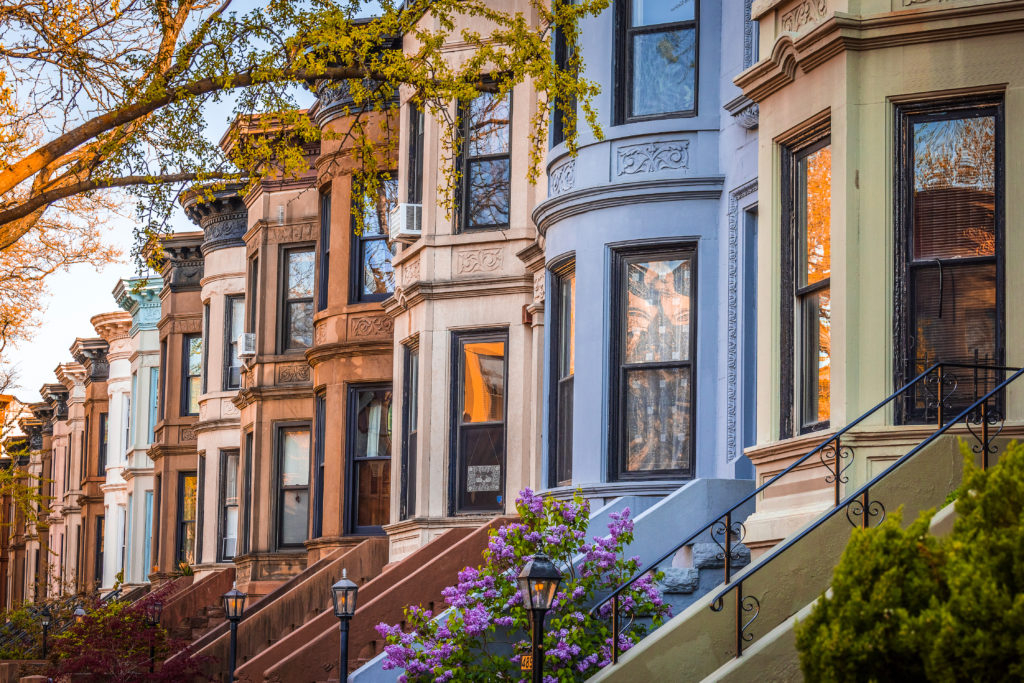
When it comes to renovations in New York City, there is nothing quite like remodeling and renovating a classic Brownstone. However, from our experience, we’ve noticed that when it comes to budgeting, the most important aspect of brownstone renovation plans is finding the right contractor – someone with experience and who is not running a scam.
Let’s face it; these buildings are old and unique, so you’re going to want to seek out a contractor who has the proper experience. Finding a contractor who has done extensive work on Brownstones. If you decide to go with a contractor who lacks experience, you will likely have to pay much more down the line when you need to redo incorrect work.
Brownstone renovation isn’t a regular apartment renovation, where most of the work is on the interior. Many times, remodeling a Brownstone requires working on the entire building. Roofing, windows, and mechanical systems like heating, air-conditioning, and plumbing, will probably all need work. What separates Brownstone renovations from regular apartments is that the load-bearing structures will likely need to be looked at and repaired. Brownstone renovation might be a costly project, so it’s crucial to hire a contractor who will get it right the first time.
To put budgets in perspective, renovating a Brownstone takes great patience, precise planning, and a workable budget. The average cost of a townhome gut renovation at $400 to $600 per square foot. But it can go up to as much as $1,000 a foot in a $9,000,000 townhome.
Brownstone renovation contractor checklist
With that number in mind, you have to be aware that there are many scam “contractors” in New York City. After large storms or natural disasters, many homeowners will be looking to remodel, which is when many of these scam artists show themselves. Losing money to a scam contractor will only prolong your timeline and increase your budget, so you’ll want to follow these tips when considering a Brownstone renovation project:
- Be skeptical about anyone who shows up at your door unsolicited and offers to do home renovations. “Storm chasers” who pop up out of nowhere will be challenging to track down if and when the work is faulty.
- If the contractor has a name, address, and contact number that you can verify, then you’re on the right track. If not, you should look elsewhere.
- Be sure to ask them for references. Then follow up with those references and see what other clients think.
- Ask the contractor for proof of insurance.
- Check the Better Business Bureau website for complaints
- Don’t sign anything under pressure. A legitimate contractor will never pressure you to sign a contract and hand over a deposit on the spot.
- Never give any commitment, or any deposit, especially cash, before you sign a contract.
- New York State requires that consumers receive a written contract for home improvement work that exceeds $500.
- Lastly, home improvement contractors must be licensed in New York City, Suffolk, Nassau, Westchester, Putnam, Rockland counties, and the City of Buffalo. Before hiring anyone, check whether the contractor is licensed or registered in your county.
The NYC Department of Buildings (DOB)
Now that you’ve found a reputable contractor, someone who isn’t going to run off with your money before finishing the job then, and someone who has worked on Brownstones in the past, the next thing you need to factor into your budget is the Department of Buildings (DOB).
The DOB states that the property owners are responsible for all work on the property. Hiring professionals who are appropriately licensed, registered, up-to-date on all insurance, and credible with the DOB ensures that you will not get into legal troubles because of any Brownstone renovation work.
The DOB also requires permits and inspections for everything not considered cosmetic work. For example, painting, plastering, replacing plumbing fixtures, installing cabinetry, and non-structural roof repair all require a permit.
Ideally, our contractor should know the requirements and file everything correctly. If not, a DOB inspection can , prolong or halt the project. Making it more costly both in time and finances.
We’re sure that if you follow these tips (find an experienced contractor, avoid scammers, and stay within DOB guidelines), you’ll be more than happy looking at your renovated Brownstone.